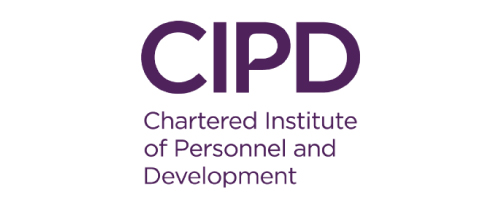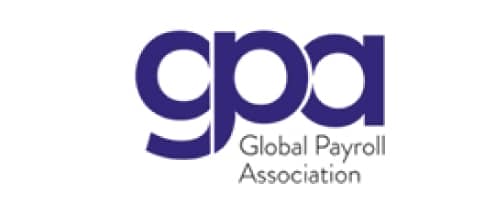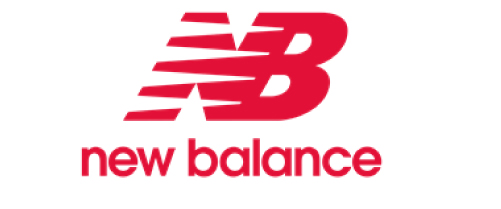
Payroll and HR in Qatar
The International HR & Payroll Company
That Speaks Your Language
IRIS FMP will simplify payroll and HR in Qatar. As a recognized, global payroll and HR specialist with 88 in-country teams, we’re here to support your overseas employees and ensure they are paid on time.
Navigating global payroll and HR in Qatar is no simple feat. As compliance is always a top priority for businesses, we help you throughout a global expansion, including any HR or payroll inquires. We can cover the differing laws, cultures and regulations, so it doesn’t become too overwhelming to stay on top of. Our expert teams are here to help, by offering:
Looking for Payroll and HR Services?
Payroll in Qatar
We take away the obstacles of international payroll and manage your pay and benefits tasks. Rest assured that your growing workforce will paid accurately, on-time, every time.
HR in Qatar
Companies use our HR services to ensure their global employees are taken care of. Our HR support is here to help you remain compliant and thrive.
Employment Law Compliance
We will help you to seamlessly and compliantly onboard your organization’s people. As an in-country specialist, we can help with contracts, policies, handbooks and more.
Global Payments Services
We provide compliant, global payment services to your cross-border transfers cost-effective.
Jump to section
Location Data
- Name
Qatar
- Region
- Asia (Western Asia)
- Population
- 2881060
- Calling Code
- 974
- Capital
- Doha
- Timezone(s)
- UTC+03:00
- Currency
- Qatari riyal (QAR)
$1 = ر.ق3.64 - Main Language
- Arabic(العربية)
- Other Business Languages
- English and Arabic
- Tax Year Start
- 1st January
- Tax Year Start
- 31st December
Details correct at time of publication. You should not rely on these details without first seeking professional international advice.
A trusted advisor for global expansion
We support businesses in 135 countries worldwide to reach their expansion goals.
Global Expansion in Qatar
Qatar offers an optimistic and open landscape which is attractive to those seeking to expand their business. There are a number of market opportunities, and the Qatar government is constantly working to encourage foreign investment and business. This is evident with the introduction of a new Foreign Investment Law in January 2019 which dictates that foreign ownership of business entities can now be 100%, where before it was just 49%.
The capital city Doha has long acted as a hub for international travel, and in fact increasing air traffic necessitated the construction of a new airport. In 2014 Doha International Airport closed, and Hamad International Airport opened for passenger planes. Today, Qatar Airways welcomes flyers from all over the world, including from business centers such as London, Brussels, and New York.
Business owners looking to expand to Qatar need to be fully aware of all the HR and payroll implications of working in the region. The experts here at IRIS FMP Payroll have ample experience in international employment law, and help guide you through everything you need to know.

Employer Must-Dos
Employers must submit the following in Qatar:
- Corporate Tax Return – due within four months from the end of the accounting period
- Audited Financial Statements signed by a Qatar-registered auditor
HR in Qatar
What are the regular working hours in Qatar?
In Qatar, most people’s working week is Sunday to Thursday. Friday is a day of prayer for Muslims, and so is the most common day off – although businesses do not necessarily close completely. Saturday is often the additional rest day, however some businesses offer Thursday as the additional because Thursday and Friday are the ‘weekend’ days for schools.
The average working week is between 40 and 48 hours, with days most often running from 8.30am – 5.30pm or 9am to 6pm. Working days are reduced to six hours during the month of Ramadan; a policy that should legally apply to all staff but is often only extended to Muslims.
Vacation, maternity and sickness
Pregnant working women in Qatar are entitled to 50 days of paid maternity leave, as long as they have been employed for at least one year. Up to 15 of the 50 days can be taken before the birth, and a minimum of 35 days must be taken afterwards. Additional leave must be agreed with the employer – this will usually be unpaid or come out of a vacation allowance. Women must supply a signed medical certificate from their doctor, detailing the expected due date of their child. Mothers are also allowed to take one hour of ‘nursing’ time every working day for one year after their child has been born.
Any employees who have given at least three months of service are entitled to paid sick leave. A medical certificate signed by a doctor must be provided though. Lawfully, sick leave will only be paid when an employee needs a minimum of two weeks. The first two weeks will be fully paid, the next four weeks will entitle them to half pay, and any more than this will be unpaid. This is the minimum by law; some companies offer more generous terms for sick employees.
Employees who have given less than five years service are entitled to three weeks – or 15 days – of fully paid annual leave. Those who have worked for more than five years are entitled to four weeks – or 20 days. This is exclusive of national Qatari holidays.
Termination
In Qatar an employee must be given three written warnings before they can be dismissed, unless there is criminal activity – in which case there can be immediate dismissal. If either party decides to terminate the contract, there is a minimum of one month’s notice for those who have been employed for less than five years, and two month’s notice after this.
Payroll in Qatar
What tax considerations are there?
Personal Income Tax
Individual income derived from salaries/wages is not subjected to tax in Qatar.
Corporate Income Tax (CIT)
Companies entirely owned by Qatari nationals are exempt from Corporate Income Tax. Any businesses owned (even in part) by foreigners, are subject to CIT at a rate of 10% on income derived from Qatar.
Tax returns should be filed and paid within four months of the end of the company’s accounting period. Usually the accounting period runs from January to December, however businesses can apply for approval from the General Tax Authority for an alternative date to align with their own accounting year-end.
If a company’s head office is outside of Qatar, or their annual profit is above 100,000 QAR ($27,464), the CIT return must be accompanied by financial statements that have been audited and signed by a Qatar-registered auditor.
NB. As of July 2019, all communication with the General Tax Authority in Qatar must be in Arabic.

Understanding International Employment Law
If you have more questions about HR and payroll law across the globe, download our helpful guide which covers everything from sick leave to pension payments.
IRIS FMP’s Qatar Payroll and HR Solutions
Anyone considering a business expansion to Doha, Ar-Rayyan, or elsewhere in Qatar must be fully aware of the local law surrounding employment. The legal aspects of HR and payroll in this region are unique and complex, and can cause additional stress during a process which is already challenging. Our team here at IRIS FMP have ample experience in navigating the world of international employment law. Our services include, but are not limited to;
- HR consultancy
- Payroll processing
- End-of-year tax administration
- Pension and Social Security payments
- Multi-currency salary payments
- Email payslips services
- Employment contracts
- Payroll auditing
- Annual leave and sickness management
- Translation services
- Regulatory compliance
- Local law consultation

Adhere to Qatar’s Payroll and HR Laws with IRIS FMP
You can be confident in your compliance with local employment law with the help of the experts at IRIS FMP. Let us help your business expansion plans go smoothly.





















